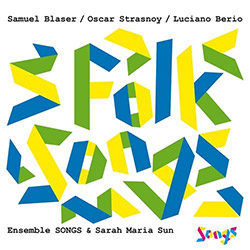
The project and ensemble "Songs" brings together Swiss trombonist & composer Samuel Blaser and pianist & composer Oscar Strasnoy, taking the instrumentation and concept of Lucio Berio's Folksongs and expanding it into Blaser's "Worksongs", a set of songs around Mississippi Delta blues, and Strasnoy's "Chanzuns Popularas Rumanchas" based on the traditional music of the Canton of Grisons.
In Stock
Quantity in Basket: None
Log In to use our Wish List
Shipping Weight: 3.00 units
EU & UK Customers:
Discogs.com can handle your VAT payments
So please order through Discogs
Sample The Album:
Sarah Maria Sun-soprano vocals
Oscar Strasnoy-piano, Rhodes
Samuel Blaser-trombone
Mathieu Ogier-78 RPM, modular synths
Rebecca Lenton-flute, piccolo
Theo Nabicht-clarinet, bass clarinet
Kirstin Maria Pientka-alto vocals
Cosima Gerhardt-cello
Manon Pierrehumbert-harp
Pascal Viglino-percussion
Guillaume Vairet-percussion
Click an artist name above to see in-stock items for that artist.
Includes a 12 page color booklet with text, lyrics, photos and credits.
UPC: 0730706005015
Label: Blaser Music
Catalog ID: SONGS001CD
Squidco Product Code: 31758
Format: CD
Condition: New
Released: 2022
Country: Switzerland
Packaging: Digipack
Recorded at Gare du Nord, in Basel, Switzerland on December 15th and 16th 2020, by Ines Kammann.
"SONGS revolves around one of the most iconic pieces of 20th century repertoire, a series of popular folk songs by Italian composer Luciano Berio for mezzo-soprano and small ensemble. Inspired by Berio's approach in the mid-1960's, Oscar Strasnoy and Samuel Blaser's musical work here is anchored in that same folk tradition. Strasnoy works with traditional music of the Canton of Grisons (interesting for its very special language spoken here, and because of its "minority" status). The jazzman from Chaux-de-Fonds moves in the footsteps of a Bartók or a Kurtág with Mississippi Delta blues inspiration creating a remarkably personal works."-Samuel Blaser
"The decades between the two world wars witnessed vast changes in the way folksongs and other music of proud and disappearing populations and traditions were captured. From the beginning of the century Cecil Sharp (his ideology and motivation much criticized in later decades) had been passionate about the musical and folkloric value of folksong, which he notated on his extended forages through English villages and, during the First World War, Appalachia. Yet the advances in recording technology in the 1920s made Sharp's pencil and field notebook, his staunchly diatonic framework and proto nationalism, seem old fashioned and undesirable. Others differently motivated signed up to this new discipline - in Truro, Somerset, Mississippi, the Carpathian Basin and beyond - with nascent recording technology their ally. In so doing they etched and forever altered the sound of the twentieth century.
The results were part anthropology, part art. Composer-collectors a generation younger than Sharp used these recordings and transcriptions in their own works. Percy Grainger, Benjamin Britten and Luciano Berio spurned Sharp's literalism in exchange for something far more harmonically inventive (though each left the transcribed vocal line pretty much alone), while Leoš Janáček and Béla Bartók infused their own concert works with the asymmetrical speech rhythms and modal freedom they lifted from the folk music they diligently unearthed and recorded.
Samuel Blaser (b. 1981) and Oscar Strasnoy (b. 1970) are also inspired by the great resource folk music and field recordings represent, but there any similarity with Sharp swiftly ends. Taking the instrumentation of Berio's Folk Songs (1964) as their starting point (flute/piccolo, clarinet, harp, viola, cello and percussion, two players), each composer has immersed himself in the language and sounds of a particular community. For Strasnoy it is the Swiss canton of Graubünden (Grisons), its Romansh language today spoken by fewer than 40,000 people. For Blaser it is the music of America's south, though sourced from three very disparate groups. Blaser's great trick in Work Songs (2019) is to replace Sharp's studied harmonic simplicity with an accompaniment of glorious complexity, aided by the addition to Berio's line-up of trombone (Blaser's own instrument), piano and judiciously employed sound recordings - a gentle nod to the origins of the material he so deftly elevates.
'I've got a horse darlin' 'n a buggy too,' the soprano sings at the cycle's commencement, and we're off immediately into a world of early country music. It's almost literally a four-note country song, yet Blaser's tonal palette transforms it into something resembling a country-music dystopia. The moto-perpetuo figure, shared evenly between instrumental families, and the sparse soundtrack that appears periodically ('Death Chant Honor Song', Blaser names the track) show us that this is not your usual rodeo. Nor indeed is it Blaser's first; there is nothing in the least bit coltish about the surefooted instrumental texture here.
'Sur le bord de l'eau' (On the water's edge) is a shift in time and place. Using an historical recording by Louisianan vocalist, guitarist, and songwriter Blind Uncle Gaspard (1878-1937), Blaser places us at the heart of Cajun balladry, a tradition celebrating the culture and Cajun language of the communities that emerged in Lower Louisiana following French colonisation in the late-seventeenth century. There's an other-worldly quality to the setting - with haunting sounds like those that emanate from the Dutchman's ship - which well suits the tale. In a neat inversion of a few thousand years of Greek mythology, the two youngest of thirty sailors living and working on a barge, moored close to the edge of an island, sing an enchanting song. A beautiful maiden walking in her garden nearby is entranced, and approaches the water, curious to learn the source of this beguiling music. Yet even with the chromatic scamperings, the disembodied whistlings and dislocating syncopation, Blind Uncle Gaspard's spirit remains ever present.
Two of the most enterprising American ethnomusicologists working in these decades were John Lomax and his son Alan. John, a self-described 'ballad hunter', was astonishingly open-minded regarding whence these ballads came. ('Go get this material while it can be found,' was his admirable philosophy.) At the height of the Depression and with his son unavailable, John employed ex-con Huddie William Leadbetter (1888- 1949) as driver. Together they spent months travelling through the deep south of the country, recording songs at every stop on Lomax's portable gramophone.
'Lead Belly' was himself a gifted folk and blues singer, and a distinctive twelve-string guitar player to boot, his style shaped by the music in the bars, brothels and dance halls
of St. Paul's Bottoms, the infamous red-light district of Shreveport. Between 1944 and 1948 Lead Belly made multiple recordings of 'Where did you sleep last night', to which Blaser has responded with harp harmonics, an insistent ostinato viola drone, and an improvised trombone solo, all stitched around a bluesy, drowsy vocal line. Porgy's Charleston seems only a few towns away, not 1200 kilometres.
The list of 'crimes' that pushed Lead Belly and so many black Americans into Louisiana's penitentiary system was remarkably catholic: vagrancy, mischief, curfew, loitering, insulting gestures. In 1947 - ten years after Life magazine's headline about Lead Belly: 'Bad Nigger Makes Good Minstrel' - Alan Lomax recorded 'No More my Lawd' in Parchman Farm, a benign name for such a sinister feature of Mississippi's prison network. In Lomax's field recording, regular axe blows punctuate the spiritual sung by the work gang (which Blaser leaves unadorned), which to Blaser's ear are deathly hammer blows. Underneath, he creates an organum effect with woodwinds, brass, and viola harmonics. It is a mesmerizing, dissonant backdrop to the heartfelt lament. The rich music of the plantations - accompaniment to all the rowing, chopping, cane cutting and rice fanning - ended up as the music of the jails. It was hardly progress.
Yet all of those in Parchman dreamed and sang of getting their 'role' (parole); 'I'm going to Memphis' was a popular explication of that dream. Alan Lomax recorded this also in Parchman - a quite lovely three-part homophonic version (the harmonies sometimes taking a while to land . . .) - which Blaser has transformed in a great, frenetic train ride out of Mississippi and towards the busy ports and lumberyards of Memphis. The crackly gramophone record left skipping at the end of the piece - singer and ensemble completely spent - underlines both the origin of the material and the bold sophistication of Blaser's settings and series of homages, the irresistible gauntlet of Berio's instrumentation persistently and skilfully grabbed with both hands.
In his Chanzuns Popularas Rumanchas (2019) Strasnoy has picked up this same gauntlet and created a sort of Graubündner Des Knaben Wunderhorn. The canton of Graubünden is the dramatic Rorschach blot nestled high in the Alps, Lichtenstein to the north, Lugano to the south. If a Swiss Wunderhorn is the source material, the auteur here is more Wes Anderson. Strasnoy's song-cycle mountainscape features an eccentric
collision of ghouls and god-botherers, low-rent hunters and farmers, the unhappily married, and pretty girls sitting in the moonlight. It is an Alpine caper movie, with yodelling mountaineers and alphornists in lederhosen playing bit parts. As in Arnim and Brentano's Wunderhorn collection of German folk poems and songs, chance encounters and unexpected juxtapositions in the canton are the order of the day (and night). And from these chance encounters, magic escapes the mundane.
Never shy of making a dramatic narrative from unrepentantly resistant material - it was his idea to adapt Irène Némirovsky's novella Le Bal into an opera (2010), a comic- bittersweet story of Jewish aspiration and attempted assimilation in Paris before the war, written long before we'd learn of its author's fate at the hands of the Nazis - Strasnoy has ingeniously solved the matter of different voices and narrative perspectives in the source material. Whereas Blaser singled out five individual songs and distinct narrators, Strasnoy has fashioned his five folksongs into a single scena, dropping a few of Blaser's armoury of percussion instruments, yet adding others of his own.
It's not that Strasnoy has created a single protagonist, but there is a single sensibility to the characters that rub up against each other, whether in arousal or enmity, much as Anderson manages in his films. The recorded track helps creates the sense of a macabre fun fair, a carousel punctuating a woman's recalled pain at being rejected ('O schi di tü bella'), which soon enough turns into a saloon bar, with its own trombone improvisation. As the piece continues there is an uneasy sense that we are inside a hall of mirrors, for nothing is quite what it seems - a brilliant reflection and refraction of the most unusual language in which the cycle unfolds, at once both familiar and foreign.
The siren in 'Chanzun de la bella Sirena' is every bit as alluring and dangerous as that in Blaser's 'Sur le bord de l'eau'. In 'La sfranzinella', piccolo traces singer in impossible coloratura, each daring the other on, and when the score designates 'groaning, moaning & whining', the singer does just that. (In the world premiere of the cycle, Sarah Sun's physical gestures were equally grotesque and enthralling.) When the opening melody returns at the very end of the scena, the listener is not left assured by the familiarity of the phrase but is instead left decidedly unsettled.
It's the greatest tribute to Blaser and Strasnoy that Berio is not a spectre at this mad feast but is instead a welcome and honoured guest - an elder statesman, if you like. His collection of eleven folksong settings - from an almost UN assortment of countries - is still a monument of twentieth-century miniatures, much like Chopin's Preludes in the previous century. A single direction at the top of Berio's score gives a flavour of his intentions: 'like a wistful "country dance fiddler"', he writes, before the viola unwinds a plaintive, open-stringed melody, all fifths and chains of dissonance and resolution. Except of course it's anything but open stringed: this is one sophisticated country-dance fiddler.
The whole cycle is a series of encounters with the folk sounds and traditions of a handful of countries: USA (as in 'Black is the colour', the opening song), Armenia, France, Sicily, Italy, Sardinia, Auvergne, and the rousing finale from Azerbaijan. The moods match the languages in which they are established, or so it seems. The graveyard feeling in 'Motettu de Tristura' (Sardinia), with churning harp and piccolo singing like a nightingale, independently of its environment, lost in its own world; the joyous Azerbaijan village folk band in the final song, its transcription unclear, its meaning self- evident. In 'Malurous quo'o uno fenno' ('Wretched is he who has a wife') we are on the same ground as Strasnoy's 'Elsbet', though quite some distance from Canteloube's view of the same Auvergne countryside, with its shepherdesses and plaintive mountain whistling, despite the shared language. Every encounter, every snapshot, is exhilarating.
The ubiquity of Berio's Folk Songs in no way undermines their genius and originality. Yet now Berio has two twentieth-first century confrères, and worthy ones too."-Paul Kildea, from the liner notes
Includes a 12 page color booklet with text, lyrics, photos and credits.
Artist Biographies
• Show Bio for Sarah Maria Sun "Sarah Maria Sun is known as one of the foremost and most extraordinary performers in the contemporary music scene. Her repertoire currently spans around 2000 compositions from the 16th to the 21st century, including more than 370 world premieres. In the 2020/21 season, Sarah Maria Sun gave her debut as "Compagna" in Luigi Nono's "Intolleranza" at the Salzburger Festspiele with Ingo Metzmacher and the Viennese Philharmonics. She will also sing her debut as "Lulu" at the mexican premiere of this Berg's Opera in Mexico City in 2023. Sarah Maria Sun regularly performs as a soloist in concert halls and festivals such as the Suntory Hall Tokyo, the Muziekgebow Amsterdam, the Elbphilharmonie Hamburg, the Tonhalle Zurich, the Auditorio National Madrid, the Berlin and Cologne Philharmonic, the Biennale Paris, Venice and Munich, the Arnold Schönberg Center Vienna and famous festivals in Witten, Donaueschingen, Herrenhausen and Cervantino and Vertice in Mexico. Her tremendous adaptability is demonstrated on a regular basis on the music-theater stage. She has appeared at the opera houses in Zurich, Basel, Dresden, Frankfurt, Munich, Dusseldorf, Stuttgart, Mannheim, Leipzig, Strasbourg, Luxembourg, Zagreb, and the Opéra Bastille and the Opéra Comique in Paris. She shows her skill for haunting theatrical and musical interpretation time and again in the depiction of complex female figures. For her performances as Elsa/Lohengrin (Lohengrin by Salvatore Sciarrino, Salzburg Easter Festival 2017) and as Gwen (Psychoses 4.48 by Philip Venables, Semper Zwei Dresden 2019) she was nominated as singer of the year. Sarah Maria Sun has performed with conductors such as Sir Simon Rattle, Ingo Metzmacher, Kent Nagano, Alan Gilbert, Thomas Hengelbrock, Susanna Mälkki, Peter Rundel, Heinz Holliger, together with the Leipzig Gewandhaus Orchestra, the Berlin Philharmonic, the North, Bavarian, South-West and West German Radio Orchestras, the Dresden Philharmonic, the Antwerp and Tokyo Symphony Orchestras and ensembles such as musikFabrik Köln, Ensemble Modern, Ensemble Mosaik, Ensemble Intercontemporain as well as the string quartets Diotima, Arditti, Minguet and Signum. From 2007-2014, she was the first soprano of the Neue Vocalsolisten Stuttgart, a chamber ensemble of seven singers that has been one of the world's leading pioneers of contemporary music for decades. Sarah Maria Sun's discography includes more than 30 CDs, many of which have been awarded with and nominated for prizes. Sarah is also an illustrator and author of children's books and releases songs with the band Titillating Tofu. She regularly gives masterclasses for vocal music from the 20th and 21st centuries; she has taught at universities and conservatoires in Oslo, Harvard, Chicago, Stockholm, Zurich, Bale, Rostock, Moscow, Dresden, Hannover, Graz or Berlin. In 2018 she was guest professor at the Musikhochschule Hannover. 2019-2022 she worked as a guest professor, tutor and lecturer at the music universities of Hannover, Graz and Lucerne. 2022 she started working as a professor at the Musikhochschule Basel, Switzerland." ^ Hide Bio for Sarah Maria Sun • Show Bio for Oscar Strasnoy "Oscar Strasnoy (born November 12, 1970) is a French-Argentine composer, conductor and pianist. Although primarily known for his stage works, the first of which Midea (2) premiered in Spoleto in 2000, his principal compositions also include two secular cantatas and several song cycles. Oscar Strasnoy was born in Buenos Aires and studied piano, conducting and composition there at the Conservatorio Nacional Superior de Música (with Aldo Antognazzi and Guillermo Scarabino), at the Conservatoire de Paris (with Guy Reibel, Michaël Levinas and Gérard Grisey), where he won in 1996 a Premier Prix à l'Unanimité (first prize) and the Hochschule für Musik, Frankfurt (with Hans Zender). He was the Music Director of the Orchestre du Crous de Paris (1996-1998). He was one of the founding recipients of the Grüneisen Foundation (Mozarteum Argentino) conducting scholarship, and of the French Government Scholarship. In 1999 he was invited by Peter Eötvös to Herrenhaus-Edenkoben in Germany. Luciano Berio awarded him the 2000 Orpheus Prize for his chamber opera Midea (2) produced at the Teatro Caio Melisso in Spoleto in 2000 and at the Rome Opera in 2001. He was also artist in residence at the Akademie Schloss Solitude in Stuttgart, in 2003 at the Villa Kujoyama in Kyoto (Institut français), and in 2006 at the Civitella Ranieri Foundation in Umbria, Italy. In 2007 he received a John Simon Guggenheim Memorial Foundation Fellowship for Music Composition. Radio France, in association with the parisian Théâtre du Châtelet, featured Strasnoy as the main composer of the Festival Présences 2012, a retrospective of most of his works in 14 concerts in January 2012." ^ Hide Bio for Oscar Strasnoy • Show Bio for Samuel Blaser "[...] Born and raised in La Chaux-de-Fonds, Switzerland - a lesser-known but no less significant jazz metropolis which was, for a time, home to expatriate Americans Sidney Bechet and Kenny Clarke, as well as Swiss jazz trombonist Raymond Droz - Blaser has also spent considerable time living in New York City and currently resides in Berlin; truly an international musician, then, in clear defiance of boundaries cultural, musical and stylistic. Beginning trombone lessons at the age of 9, he "couldn't go past third position and had to have a trolley to carry trombone because it was too heavy," says Blaser. Still, with plenty of music in the Blaser household, where he was the middle of three children - ranging from Swiss folk music to American R&B and jazz - Blaser progressed quickly, entering the local conservatory at 14 and graduating seven years later in 2002 after receiving a number of awards in both the jazz and classical spheres, including the 2000 Benny Golson Prize. Continuing private studies, Blaser began a number of significant associations, including the heralded Vienna Art Orchestra and European Radio Big Band, leading to a Fulbright scholarship which enabled him to study in the United States at the Purchase College Conservatory of Music, going on to win the J.J. Johnson Prize, as well as both the Public Prize and Jury's Favorite Player awards at the 2006 Fribourg Jazz Festival. All of these diverse accomplishments have ultimately - and inevitably - led to Blaser finding a personal nexus where disparate elements like Indian Tihi and Wagnerian opera meet. Blaser's impressive improvisational élan is predicated on instrumental mastery that is nothing more than the means to very musical ends. Together with his equally unfettered quartet, Blaser continues to expand the purview of jazz, redefining it in the new millennium as it enters its second century of existence. Beyond Blaser's ability to combine knotty compositional form with incendiary improvisational prowess in the context of his own music, his unfettered yet ever-collaborative approach has resulted in a number of significant associations, among them his ongoing work with Swiss percussion legend Pierre Favre; a much-lauded duo with pianist Malcolm Braff; touring in 2012 as a member of François Houle's recent 5+1 group, and heard on the French Canadian clarinetist's Genera (Songlines, 2012); and recording/performing with Berlin-based Canadian saxophonist Peter van Huffel's HuffLiGNoN group with singer Sophie Tassignon. Blaser has also shared the stage with artists including trombonist David Taylor, bassist Michael Blake, drummer John Hollenbeck and pianist Hal Galper. It's no surprise that Rene Laanen of USA Trombone Online has called Blaser" one of today´s finest trombonists." 2013 will see Blaser touring with two new trios: one that, in addition to Marc Ducret, will also feature Danish drummer Peter Bruun; and another featuring French pianist Benoit Delbecq and American drummer Gerry Hemingway. Equally important, Blaser will also reunite his Consort in Motion (Kind of Blue, 2011) Quartet with pianist Russ Lossing, Belgian reed player Joachim Badenhorst, bassist Drew Gress and Hemingway, who replaces the sadly deceased Paul Motian. That record - Blaser's first and only to include a pianist, marrying the seemingly disparate elements of Renaissance and Baroque period composition with more open-ended jazz improvisation - was praised by All About Jazz's Troy Collins as " Fearlessly modern, yet respectfully regal." Collins continues, asserting that "Blaser's adventurous arrangements and reinterpretations offer the best of both worlds, enriching the raw impetuousness of avant-garde jazz with the proven sophistication of ageless classical forms. Consort in Motion is a high-water mark in the enduring lineage of the Third Stream, and all the more inspiring for the focus of its vision." Meanwhile, with the release of As the Sea - like Boundless, a live recording but one culled from a single performance - Blaser reaps the rewards of greater trust and personal camaraderie built with Ducret, Oester and Cleaver through additional touring, following the release of their debut recording. "The music is quite different from the first record," says Blaser, "because things are more written. It's a little more complex rhythmically, too. But it's crazy, because I can play anything - a single note, even - and everybody will move with me. It's pretty intense." Between recording and touring with his own groups and collaborating in other leaders' ensembles, Blaser's career continues an upward trajectory that seems to have no end in sight. "The world of music fascinates me to no end, and I´m determined to take one journey after another with my instrument and work," says Blaser. "It´s all about discovery and communicating new ideas. Believe me, I´m proof that a shiny trombone can send a message right to your heart and change your life." " ^ Hide Bio for Samuel Blaser • Show Bio for Rebecca Lenton "Flute player specialised in contemporary music. Music Director of Germany's first adult amateur ensemble for New Music. Flute tutor and workshop leader for the next generation of musicians. Professional life-coach, mediator and pedagogue for Functional Relaxation. Born in the UK, Rebecca Lenton studied flute at the Guildhall School of Music and Drama, London with Averil Williams, and the Musik-Akademie Basel, Switzerland with Felix Renggli. She lives in Berlin and has been a member of the internationally renowned Ensemble KNM Berlin since 2002, with whom she has performed at festivals and concert venues around the world, including at the Huddersfield Contemporary Music Festival, Wien Modern, Carnegie Hall in New York, Donaueschinger Musiktage, Ultraschall Festival and Märzmusik in Berlin, Festival Présences in Paris, and tours to Argentina, Japan, Mexico, South Korea and Taiwan. Rebecca Lenton is also a regular guest with Klangforum Wien, Ensemble Contrechamps and Ensemble Resonanz. She has freelanced with orchestras including Staatsoper Berlin, Royal Opera House, Covent Garden, London Philharmonic and BBC National Orchestra of Wales. In 2011, Rebecca founded the KNM campus ensemble, a group of amateur musicians which now performs regularly in Berlin and has premiered several pieces written for them. The ensemble performed at the Contemporary Music for All (CoMA) Festival at King's Place, London in March 2016 and hosted its own KNM campus days at Podewil in October 2016, Berlin's first festival for amateur players of contemporary music.The ensemble is now partners with CoMA UK (Contemporary Music for All). Rebecca is also a trained life coach, mediator and teacher of functional relaxation." ^ Hide Bio for Rebecca Lenton • Show Bio for Theo Nabicht "Theo Nabicht (* 1963 in Ebersbach / Sa.) Is a German woodwind (soprano, alto, tenor saxophone, bass clarinet, double bass clarinet) and composer. Nabicht studied saxophone, flute and piano from 1983 to 1987 at the Hochschule fŸr Musik "Hanns Eisler". From 1995 to 1997 he completed a masterclass for bass clarinet at the Conservatory of Strasbourg. Theo Nabicht has since the 1980s with Bert Wrede, the orchestra Vielharmonie, the quartet BakaMutz with Bert Wrede, Thierry Madiot and Mauro Gnecchi, Gebhard Ullmann's big band Ta Lam 10 and the Clarinet Trio with Ullmann and JŸrgen Kupke worked. There were record releases and participation in international (jazz) festivals with musicians such as Phil Minton, Mikhail Alperin, Lutz Glandien, Werner Dafeldecker, Anthony Braxton, Peter Kowald and Fred Frith. Nabicht is a long-standing member of the Kammersemble Neue Musik Berlin and a guest at Klangforum Wien. Today he is mainly concerned with the performance of contemporary composed music (such as Giacinto Scelsi, Rolf Riehm or Helmut Oehring) and new improvisational music. He is also a composer; He composed in particular for theatrical productions of the Munich Kammerspiele, the theater Frankfurt or television productions. Today he is mainly concerned with the performance of contemporary composed music (such as Giacinto Scelsi, Rolf Riehm or Helmut Oehring) and new improvisational music. He is also a composer; He composed in particular for theatrical productions of the Munich Kammerspiele, the theater Frankfurt or television productions. Today he is mainly concerned with the performance of contemporary composed music (such as Giacinto Scelsi, Rolf Riehm or Helmut Oehring) and new improvisational music. He is also a composer; He composed in particular for theatrical productions of the Munich Kammerspiele, the theater Frankfurt or television productions." ^ Hide Bio for Theo Nabicht • Show Bio for Kirstin Maria Pientka "Kirstin Maria Pientka, born in Nordhausen/Harz, began playing the violin at the age of five and switched to the viola at the age of ten. Initial lessons at the Leipzig Music Academy were followed from 1994-2000 by studies at the Freiburg and Berlin Music Academy with Prof. Kim Kashkashian and a guest semester with Garth Knox (London) and Prof. Hartmut Rhode (Berlin). In 2003 she completed her studies with the soloist exam. After winning prizes in several competitions, invitations to well-known festivals, numerous radio recordings, CD recordings and DVD productions followed. Kirstin Maria Pientka played in the Herbert von Karajan Foundation of the Berlin Philharmonic Orchestra and was a scholarship holder of the Deutsche Stiftung Musikleben and the Kulturkreis der Deutschen Wirtschaft in the BDI. Since 1998 she has been solo violist with the Dresden Symphony Orchestra. As a member of the KNM Berlin, one focus of her concert activities is on new music, a second on historical performance practice on her baroque instrument." ^ Hide Bio for Kirstin Maria Pientka • Show Bio for Cosima Gerhardt "Cosima Gerhardt studied cello in Prague, Bremen and Berlin with Alexander Baillie and Stanislav Apolin. Her main focus is on contemporary music. As the cellist of the Sonar Quartet and the Duo tocar, she has a busy concert schedule and plays regularly in the Ensemble Resonanz and the Kammerensemble Neue Musik Berlin. Cosima Gerhardt is a teacher for Alexander Technique and mother of two children." ^ Hide Bio for Cosima Gerhardt • Show Bio for Manon Pierrehumbert "Born in 1986, Manon Pierrehumbert studied harp in La Chaux-de-Fonds and London. She has a classical background, has played with various contemporary ensembles and orchestras in Switzerland and led many projects from chamber music to solo programs. She also taught harp between 2007 and 2014. In 2011, she created the company Bin°oculaire with whom she has been creating projects that link music with theater, space and literature, with the wish to work with contemporary artists coming from different artistic fields." ^ Hide Bio for Manon Pierrehumbert • Show Bio for Pascal Viglino "Pascal Viglino studied classical and contemporary percussion, composition and musical theatre at the conservatories of Geneva, London, Barcelona, Berlin and Bern. He has been a active member of the Verbier Festival Orchestra, the Orquesta do Algarve (Portugal), the Durban Philharmonic (South Africa), the Academia d'orquesta del Grand Teatre Liceu Opera (Barcelona),, ensembles with which he has performed in more than forty countries. He regularly performs with various orchestras and contemporary music ensembles (Bern Symphony Orchestra, Eklekto Geneva Percussion Ensemble, Camerata Variabile, Zurich Opera, Camerata Bern, Barcelona Symphony Orchestra, Kammerorchester Basel, Ensemble Contrechamps, Kammer Neuemusik Ensemble Berlin, Kammerorchester Bern, Orchestre de la Suisse Romande, Bergen Philharmonic (Norway), as well as with other music ensembles. He has been awarded various national prizes and scholarships. Pascal Viglino leaded various artistic projects for the Verbier Festival, Musikfestival Bern, Festival Hik et Nunk, the Pfingskonzerte of Ittingen, the Davos Festival. He is also a composer for various musical theatre projects. In 2011, he founded the artistic platform KLANGBOX and is its artistic director. In 2015, he created XiViX Op. 1515 for Mannequins & Ensemble as part of the Pro Helvetia Foundation's international cultural exchange programme "Viavai, Switzerland-Lombardy". Project for which he collaborated with twenty Swiss and Italian artists, including the Accademia di Belle Arti di Brera in Milan. In 2016, he collaborated with the singer-uddist Wael Sami Elkholy to found the first Music-theater ensemble of the Middle-East, in Cairo-Egypt." ^ Hide Bio for Pascal Viglino • Show Bio for Guillaume Vairet Guillaume Vairet is a German percussionist, a member of Ensemble Unitedberlin. ^ Hide Bio for Guillaume Vairet
7/9/2025
Have a better biography or biography source? Please Contact Us so that we can update this biography.
7/9/2025
Have a better biography or biography source? Please Contact Us so that we can update this biography.
7/9/2025
Have a better biography or biography source? Please Contact Us so that we can update this biography.
7/9/2025
Have a better biography or biography source? Please Contact Us so that we can update this biography.
7/9/2025
Have a better biography or biography source? Please Contact Us so that we can update this biography.
7/9/2025
Have a better biography or biography source? Please Contact Us so that we can update this biography.
7/9/2025
Have a better biography or biography source? Please Contact Us so that we can update this biography.
7/9/2025
Have a better biography or biography source? Please Contact Us so that we can update this biography.
7/9/2025
Have a better biography or biography source? Please Contact Us so that we can update this biography.
7/9/2025
Have a better biography or biography source? Please Contact Us so that we can update this biography.
Track Listing:
1. Worksongs 1 2:17
2. Worksongs 2 3:31
3. Worksongs 3 3:17
4. Worksongs 4 4:09
5. Worksongs 5 2:47
6. Chanzuns Popularas Rumanchas 17:23
7. Folks Songs 1 3:14
8. Folks Songs 2 2:05
9. Folks Songs 3 2:42
10. Folks Songs 4 1:41
11. Folks Songs 5 1:26
12. Folks Songs 6 1:22
13. Folks Songs 7 1:30
14. Folks Songs 8 2:05
15. Folks Songs 9 0:59
16. Folks Songs 10 2:58
17. Folks Songs 11 2:29
Compositional Forms
Improvised Music
Jazz
European Improvisation, Composition and Experimental Forms
Large Ensembles
Song Based Music
New in Compositional Music
New in Improvised Music
New in Improvised Music
Search for other titles on the label:
Blaser Music.


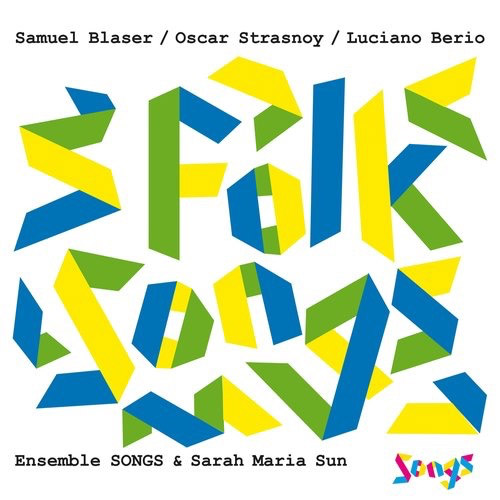


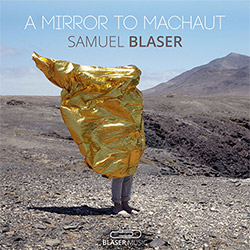






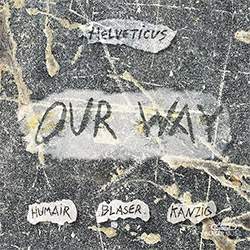

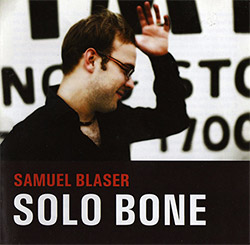

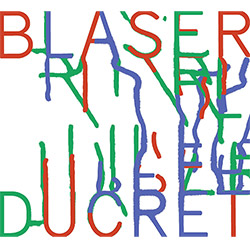
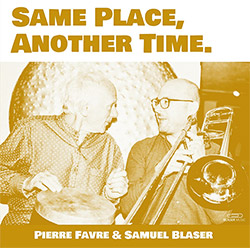

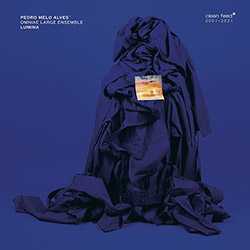



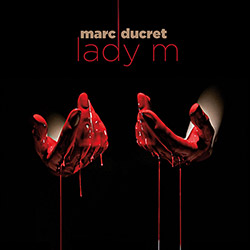
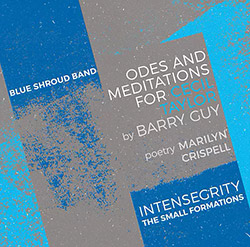
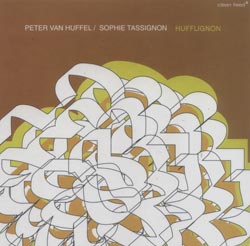







![BlueRing Improvisers: Materia [2 CDs]](https://www.teuthida.com/productImages/misc4/36513.jpg)








![Wheelhouse (Rempis / Adasiewicz / McBride): House And Home [VINYL]](https://www.teuthida.com/productImages/misc4/36462.jpg)
![+DOG+: The Light Of Our Lives [2 CDs]](https://www.teuthida.com/productImages/misc4/36009.jpg)


![Parker, Evan / Jean-Marc Foussat: Insolence [VINYL]](https://www.teuthida.com/productImages/misc4/36398.jpg)










![Deupree, Jerome / Sylvie Courvoisier / Lester St. Louis / Joe Morris: Canyon [2 CDs]](https://www.teuthida.com/productImages/misc4/36404.jpg)



![Eventless Plot | Haarvol: The Subliminal Paths [CASSETTE + DOWNLOAD]](https://www.teuthida.com/productImages/misc4/36232.jpg)










![Eventless Plot | Francesco Covarino: Methexis [CASSETTE + DOWNLOAD]](https://www.teuthida.com/productImages/misc4/36231.jpg)



![Das B (Mazen Kerbaj / Mike Majkowski / Magda Mayas / Tony Buck): Love [VINYL]](https://www.teuthida.com/productImages/misc4/36329.jpg)


![Eternities: Rides Again [CASSETTE]](https://www.teuthida.com/productImages/misc4/36247.jpg)
![Lopez, Francisco: Untitled (2021-2022) [2 CDs]](https://www.teuthida.com/productImages/misc4/36438.jpg)






![Money : Money 2 [2 CDs]](https://www.teuthida.com/productImages/misc4/35894.jpg)




![Klinga, Erik: Elusive Shimmer [VINYL]](https://www.teuthida.com/productImages/misc4/36258.jpg)
![CHANGES TO blind (Phil Zampino): Volume 9 - I Wave on a Fine Vile Mist [CD + DOWNLOAD]](https://www.teuthida.com/productImages/misc4/36061.jpg)

![Wallmart / Rubbish: Asset Protection [split CD]](https://www.teuthida.com/productImages/misc4/35900.jpg)


![+Dog+: The Family Music Book Vol. 5 [2 CDs]](https://www.teuthida.com/productImages/misc4/35897.jpg)
![Kuvveti, Deli : Kuslar Soyledi [CASSETTE w/ DOWNLOAD]](https://www.teuthida.com/productImages/misc4/36107.jpg)

![Brown, Dan / Dan Reynolds: Live At The Grange Hall [unauthorized][CASSETTE]](https://www.teuthida.com/productImages/misc4/36245.jpg)








![Palestine, Charlemagne / Seppe Gebruers: Beyondddddd The Notessssss [VINYL]](https://www.teuthida.com/productImages/misc4/36206.jpg)
![Palestine, Charlemagne / Seppe Gebruers: Beyondddddd The Notessssss [NEON GREEN VINYL]](https://www.teuthida.com/productImages/misc4/36207.jpg)

![Laubrock, Ingrid: Purposing The Air [2 CDs]](https://www.teuthida.com/productImages/misc4/35639.jpg)

![Yoko, Ono / The Great Learning Orchestra: Selected Recordings From Grapefruit [2 CDs]](https://www.teuthida.com/productImages/misc4/35841.jpg)









![Zorn, John / JACK Quartet: The Complete String Quartets [2 CDs]](https://www.teuthida.com/productImages/misc4/35609.jpg)

![Lonsdale, Eden: Dawnings [2 CDs]](https://www.teuthida.com/productImages/misc4/35480.jpg)



![Sorry For Laughing (G. Whitlow / M. Bates / Dave-Id / E. Ka-Spel): Rain Flowers [2 CDS]](https://www.teuthida.com/productImages/misc4/35985.jpg)

![Rolando, Tommaso / Andy Moor : Biscotti [CASSETTE w/ DOWNLOADS]](https://www.teuthida.com/productImages/misc4/36106.jpg)


![Electric Bird Noise / Derek Roddy: 8-10-22 [CD EP]](https://www.teuthida.com/productImages/misc4/35970.jpg)








![Elephant9 : Mythical River [VINYL]](https://www.teuthida.com/productImages/misc4/34624.jpg)



![Elephant9 with Terje Rypdal: Catching Fire [VINYL 2 LPs]](https://www.teuthida.com/productImages/misc4/35355.jpg)
![Deerlady (Obomsawin, Mali / Magdalena Abrego): Greatest Hits [VINYL]](https://www.teuthida.com/productImages/misc4/34876.jpg)







![Surplus 1980: Illusion of Consistency [CD]](https://www.teuthida.com/productImages/misc4/35069.jpg)
![Staiano, Moe: Away Towards the Light [VINYL + DOWNLOAD]](https://www.teuthida.com/productImages/misc4/35037.jpg)
![Coley, Byron: Dating Tips for Touring Bands [VINYL]](https://www.teuthida.com/productImages/misc4/17906.jpg)

![Lost Kisses: My Life is Sad & Funny [DVD]](https://www.teuthida.com/productImages/misc4/lostKissesDVD.jpg)